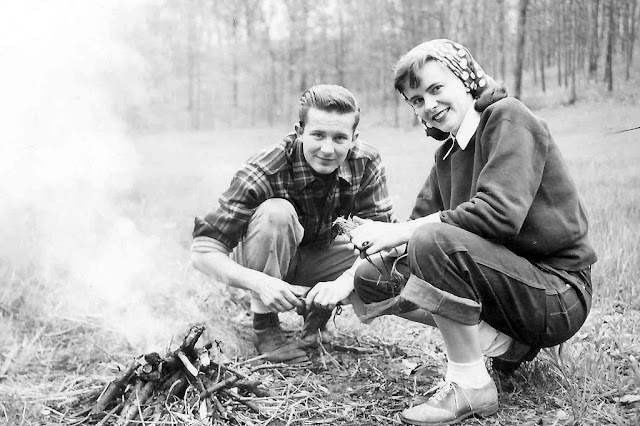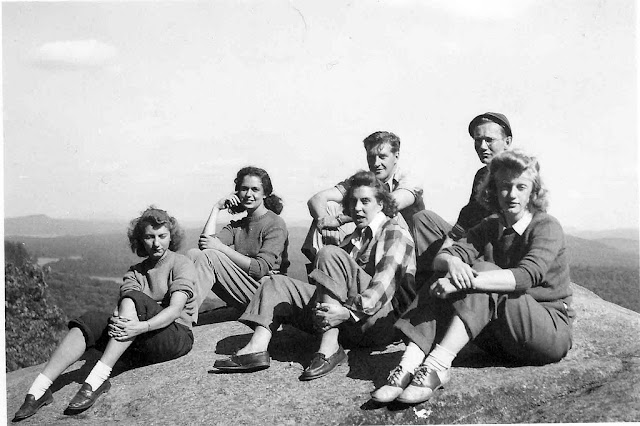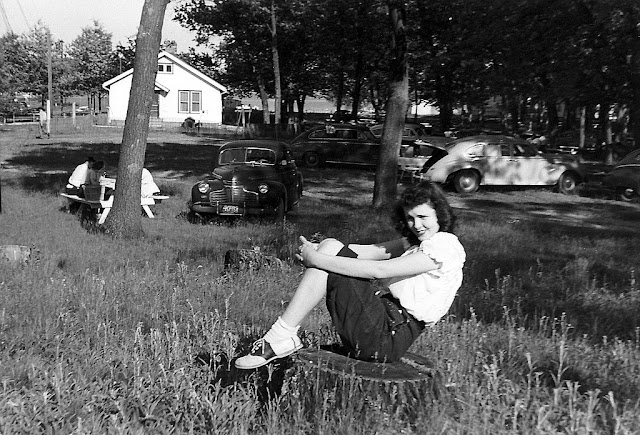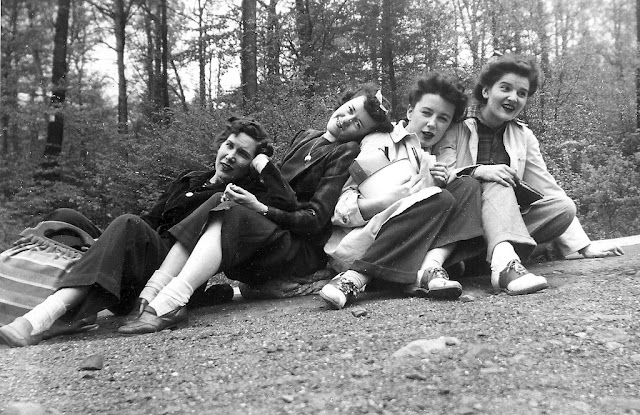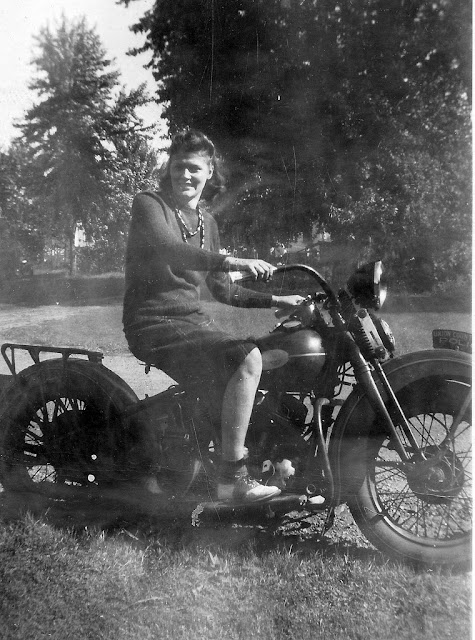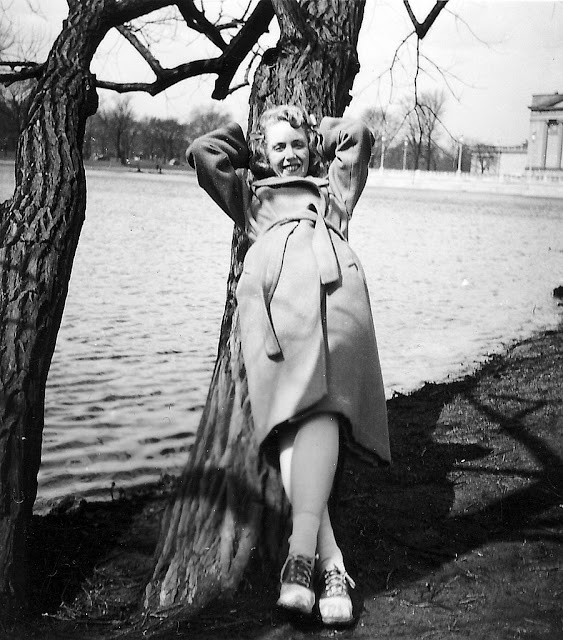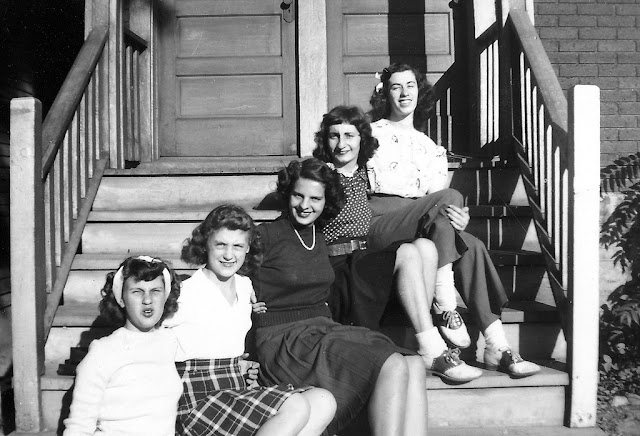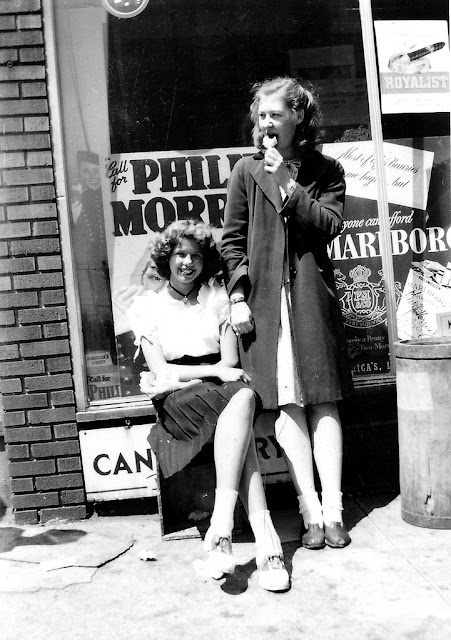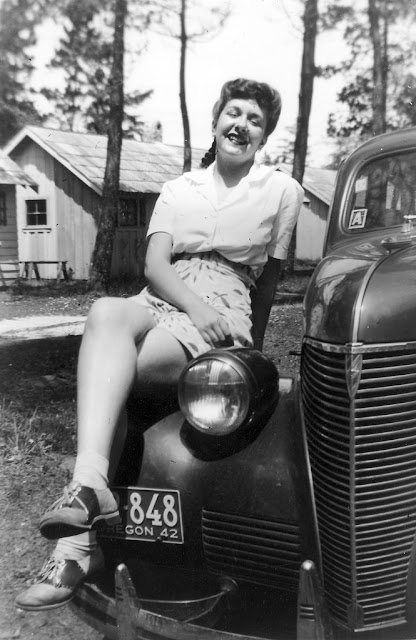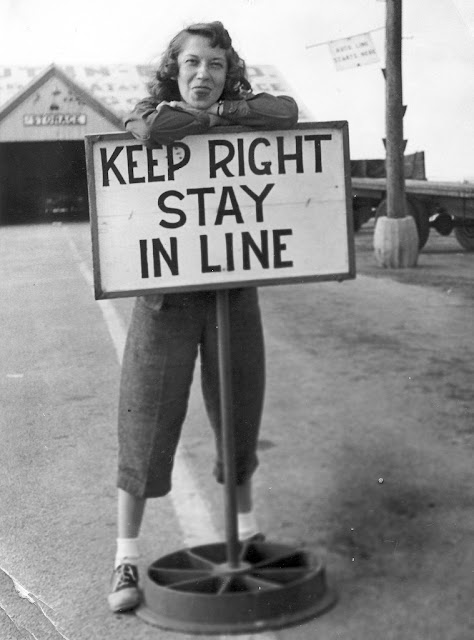Bobby soxer is a 1940s sociological coinage describing the often very zealous fans of traditional pop music, in particular its creators like singer Frank Sinatra. Bobby soxers were usually teenage girls and young adult women from about 12 to 25.
A gang of bobby-soxer pals would certainly be easy to spot at a soda shop or movie theater because of their uniform-like outfits that revolved, of course, around ankle socks, which replaced stockings when nylon became necessary for producing World War II supplies. Typically, bobby-soxers would wear their ankle socks with saddle shoes, penny loafers or ballet-style slippers. A Shetland sweater with cuffed blue jeans or a poodle skirt, along with a trendy identification bracelet bearing a girl's name or initials, completed the classic bobby-soxer ensemble.
Fashion conformity was a cornerstone of bobby-soxer culture, because unlike preceding generations, these teen girls were fixated on fitting in. LIFE magazine reported on this facet of the bobby-soxer mindset in the early 1940s, observing that "the microcosm of their gang is everything". That adolescent angst over their appearance makes sense, considering that they were interacting every day in school more than ever before. In 1900, only 11 percent of teenagers in the United States attended high schools, whereas almost 80 percent of them were doing so by 1940. In addition to allowances doled out by parents, teen girls funded their wardrobes and extracurricular outings with pocket money earned from babysitting, a grassroots industry that would only pick up after the baby boom began in 1944.



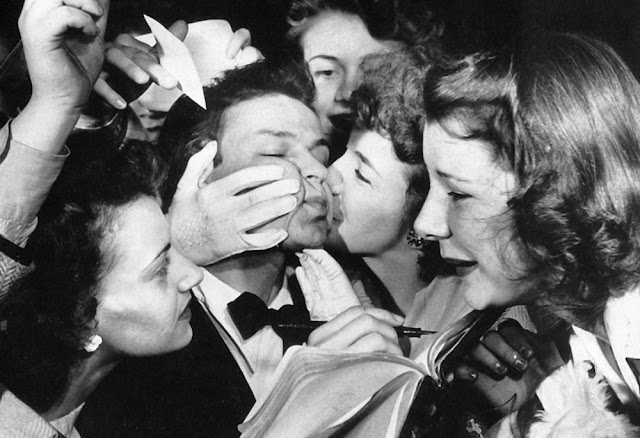
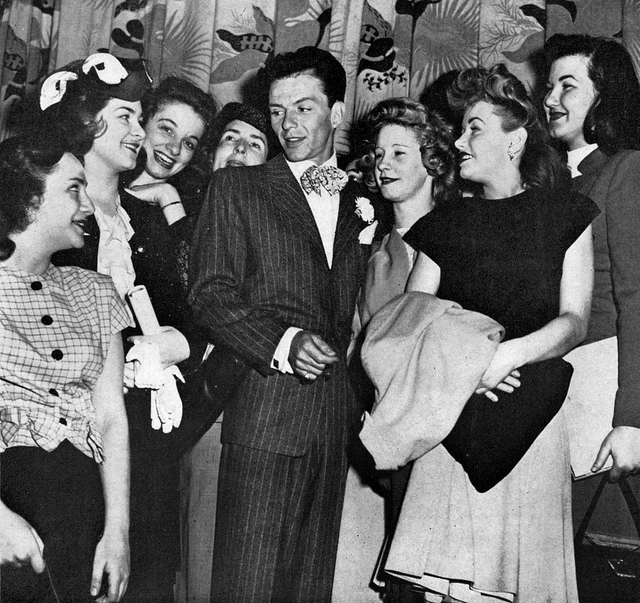


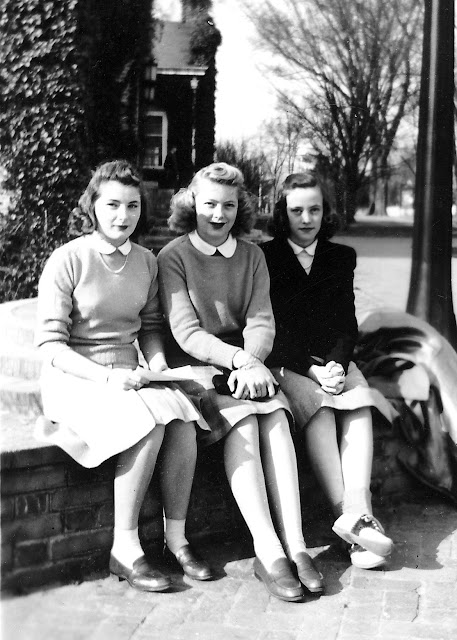

Bobby Soxers of the 1940s






